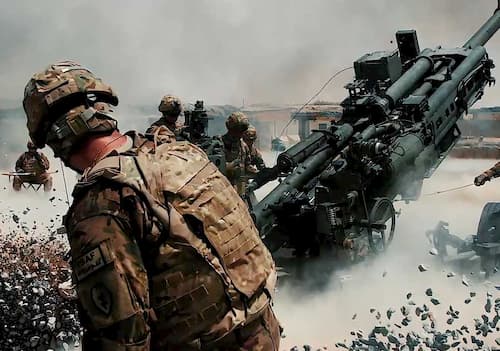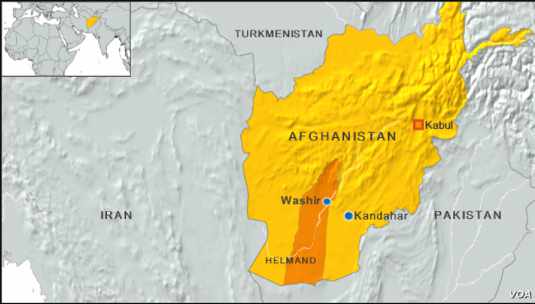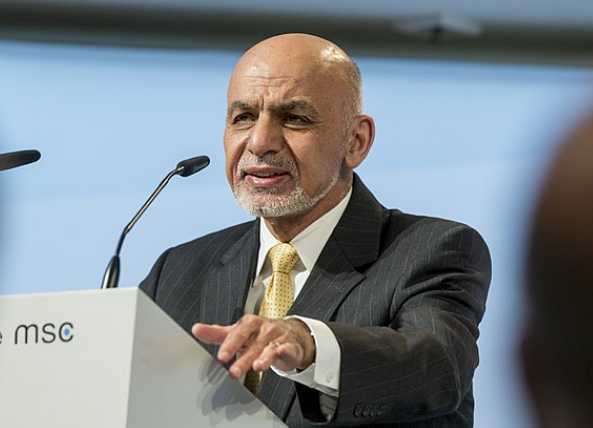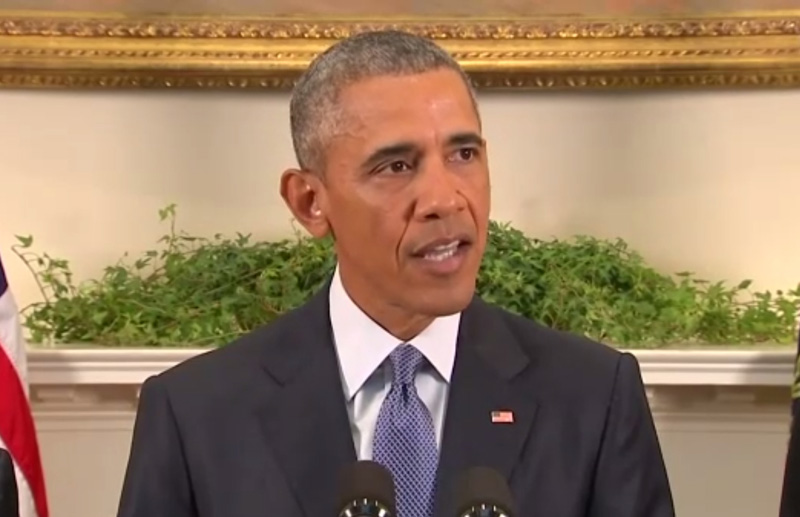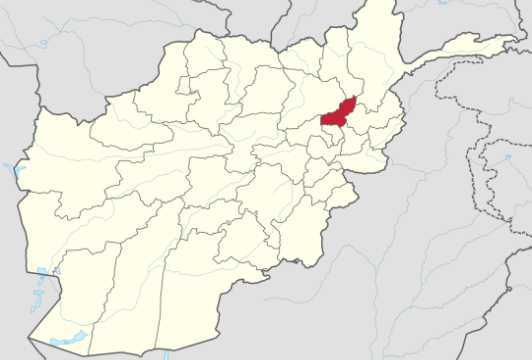WASHINGTON/ISLAMABAD – The U.S. military troop withdrawal from Afghanistan is more than 90% complete, U.S. Central Command announced Tuesday.
The news comes days after U.S. and international forces left Bagram Airfield, which has served for nearly two decades as the center of the U.S. fight to remove Taliban forces from power and take down al-Qaida terrorists responsible for killing thousands of Americans on September 11, 2001.
Pentagon press secretary John Kirby on Tuesday defended the military’s recent pullout from Bagram, the execution of which had caused local Afghan commanders to express surprise at the departure and led to a security lapse that allowed looters onto the base.
Kirby confirmed that the U.S. military withheld from its Afghan allies the specific time it would complete a withdrawal, citing “operational security,” but said the departure “wasn’t done in some shroud of secrecy.”
The Associated Press reported Monday that Afghan military officials said U.S. forces had left the base overnight Friday without notifying the new Afghan commander.
“I can’t speak for how Afghan leadership briefed their people. What I can tell you is that there was coordination between General (Scott) Miller and his staff and senior Afghan military and civilian leaders about the turnover of Bagram. That I know. And that there was, even to the degree of there being a walkthrough,” Kirby said.
The walkthrough of the base occurred “some 48 hours before” the U.S. troops departed. The U.S. had officially handed over six other facilities to the Afghan Ministry of Defense prior to giving up control of Bagram.
The Associated Press also reported that the power had gone out at Bagram shortly after the U.S. troops left, causing confusion that allowed looters to get on base and ransack buildings.
Kirby told reporters at the Pentagon that he would look into questions about why the electricity had been cut off.
‘Teething problems’
Meanwhile, Afghanistan’s national security chief said Tuesday that “teething problems” stemming from the withdrawal of U.S.-led foreign troops were behind recent rapid Taliban territorial gains and that his government was working to overcome them.
U.S. President Joe Biden ordered all American soldiers to leave the war-torn nation by September 11 to end nearly 20 years of unprecedented U.S. military engagement there. NATO partners have followed suit.
The military drawdown, largely complete and expected to be finished by late August, began May 1.
Since then, the Taliban have more than doubled the number of districts they control, according to the Foundation for Defense of Democracies’ Long War Journal. The Taliban have grabbed hold of more than 120 districts in the past two months, expanding from 73 to 195 Taliban-controlled districts.[content id=”79272″]
“We had some glitches as a result of the retrograde and the additional pressure on the Afghan air force. … These were some kind of teeth(ing) problems that we are overcoming,” Hamdullah Mohib, the Afghan national security adviser, told reporters in Kabul.
The adviser explained that a lack of resources, particularly those related to the Afghan air force, made it hard for authorities to sustain much-needed supplies to remote security bases after foreign troops had begun pulling out of the country.
“Those areas came under pressure, and the way it (the drawdown) happened, the succession and the timing of it made people worried,” Mohib said.
Mohib rejected reports that pro-government forces were defecting to the insurgents. “They may have abandoned their posts because they ran out of ammunition, they ran out of supplies. But by no means has anyone defected to the Taliban.”
Despite widespread insurgent territorial advances, the Afghan adviser appeared confident his government still enjoyed the public’s support, suggesting the battlefield setbacks were temporary.
“It’s a war and there is pressure. Sometimes things work in our way and sometimes they don’t.”
Fleeing To Tajikistan
Mohib said Afghan soldiers who had crossed into Tajikistan in recent days after coming under insurgent attacks “are being brought back” and would be rejoining the national security forces.
Authorities in the neighboring Central Asian state have confirmed that in the past two weeks, about 1,600 soldiers from Afghanistan’s embattled Badakhshan province have taken refuge in Tajikistan to escape Taliban advances.
The development prompted Tajik President Emomali Rahmon on Monday to order the mobilization of 20,000 military reservists to bolster the border with Afghanistan.
Mountainous Badakhshan also borders China and Pakistan. The Taliban claimed Tuesday that their fighters took control of Wakhan district next to the Chinese border, reportedly bringing almost all of the province’s 28 districts under insurgent control.
In February 2020, the United States, under then-President Donald Trump, signed a peace deal with the Taliban that set the stage for the foreign troop withdrawal from Afghanistan. But the U.S.-brokered peace talks between the insurgent group and the Afghan government, which started last September, have since stalled.
Mohib insisted Tuesday that Kabul was ready to find a negotiated settlement to the conflict with the Taliban in line with the wishes of Afghans and the international community, but the insurgents were refusing to do.
When asked for his reaction as to who is responsible for stalling the talks, Taliban spokesman Zabihullah Mujahid told VOA that his group “is ready and determined to move the peace process forward but the other side is not willing to do so.”
Washington says it will continue to provide economic and financial assistance for Afghan security forces. The Biden administration said Sunday that its embassy in Kabul would remain open. Officials say a contingent of U.S. troops will be left behind to protect the diplomatic mission.
Fears of refugee crisis
The worsening security situation in the wake of rapid Taliban advances has Afghanistan’s neighbors worried about a fresh wave of refugees coming their way from the turmoil.
Officials in Pakistan, which still hosts nearly 3 million Afghan refugees fleeing four decades of hostilities in their country, said they had tightened border security and might not open it to new refugees.
“But, if the situation deteriorates, we will establish settlements along the border with strict control and monitoring, prohibiting the entry of refugees into the mainland,” local media Tuesday quoted Pakistani Interior Minister Sheikh Rashid Ahmed as saying.
[content id=”52927″][content id=”79272″]


